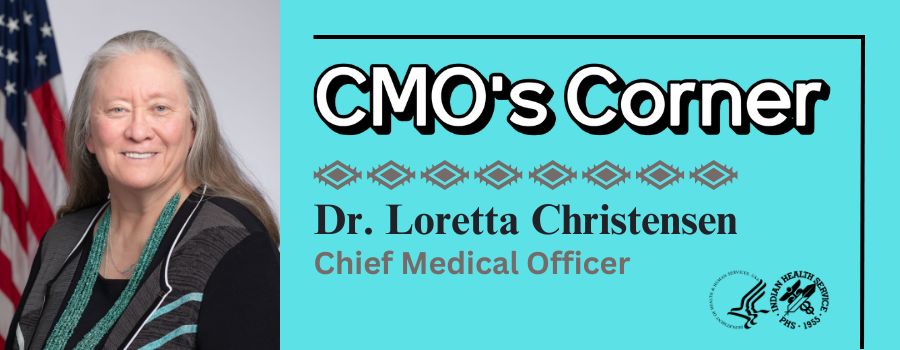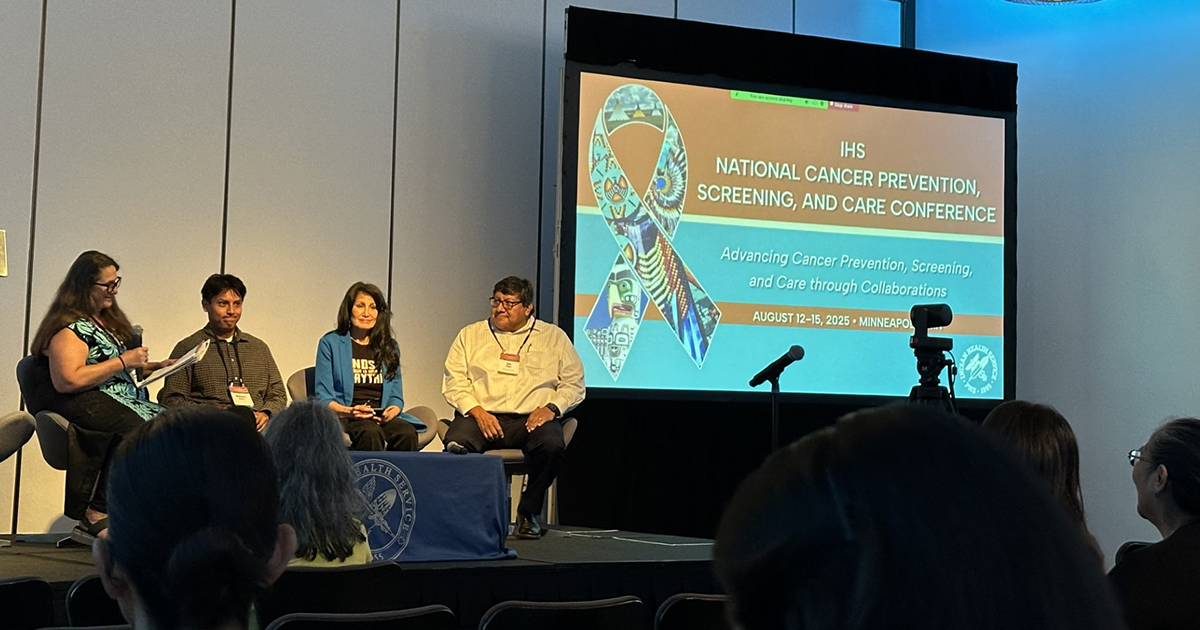
Advancing Cancer Prevention, Screening, and Care
The first-ever IHS National Cancer Prevention, Screening, and Care Conference that was convened in Minneapolis, Minnesota, brought together more than 100 participants from diverse disciplines, programs, and organizations to focus on one shared goal: improving cancer outcomes for American Indian and Alaska Native people. With the theme “Advancing Cancer Prevention, Screening, and Care through Collaboration,” the meeting emphasized the importance of early detection, prevention, and innovative strategies to improve care and referral pathways.
The conference opened with powerful testimonies from cancer survivors who spoke about their determination, hope, and resilience journeys. Their message was clear—ask questions, advocate for your health, and never ignore symptoms that don’t go away. Preventive screenings remain one of the most effective tools for early detection, and timely follow-up can save lives.
Plenary sessions highlighted the soon-to-be-released IHS Blueprint for Action to Reduce Cancer among American Indian and Alaska Native communities. This blueprint focuses on prevention, early detection, survivorship care, quality treatment, and data-driven improvements. Other updates included progress in cancer patient navigation, behavioral risk reduction, colorectal cancer screening pilots, the Food is Medicine initiative, and interactive mapping tools that will soon support cancer prevention and treatment planning.

Breakout and workshop sessions provided opportunities to learn about patient navigation, tobacco prevention, billing and quality, and integrating traditional medicine with modern cancer care. Participants also discussed HPV vaccination, H. pylori prevention, and strategies to strengthen collaboration among non-profit organizations, cancer centers, and academic partners.
The energy throughout the conference reflected a strong commitment to discovery, innovation, and shared responsibility. More than 60 breakout groups shared promising practices and new research, reinforcing the importance of working together to address cancer disparities.
Cancer remains a leading cause of death among American Indian and Alaska Native people. Addressing this challenge requires early detection, access to quality care, and strong partnerships across systems. The dedication and collaboration at this conference demonstrate the collective commitment to advancing cancer prevention and treatment for Native communities.


